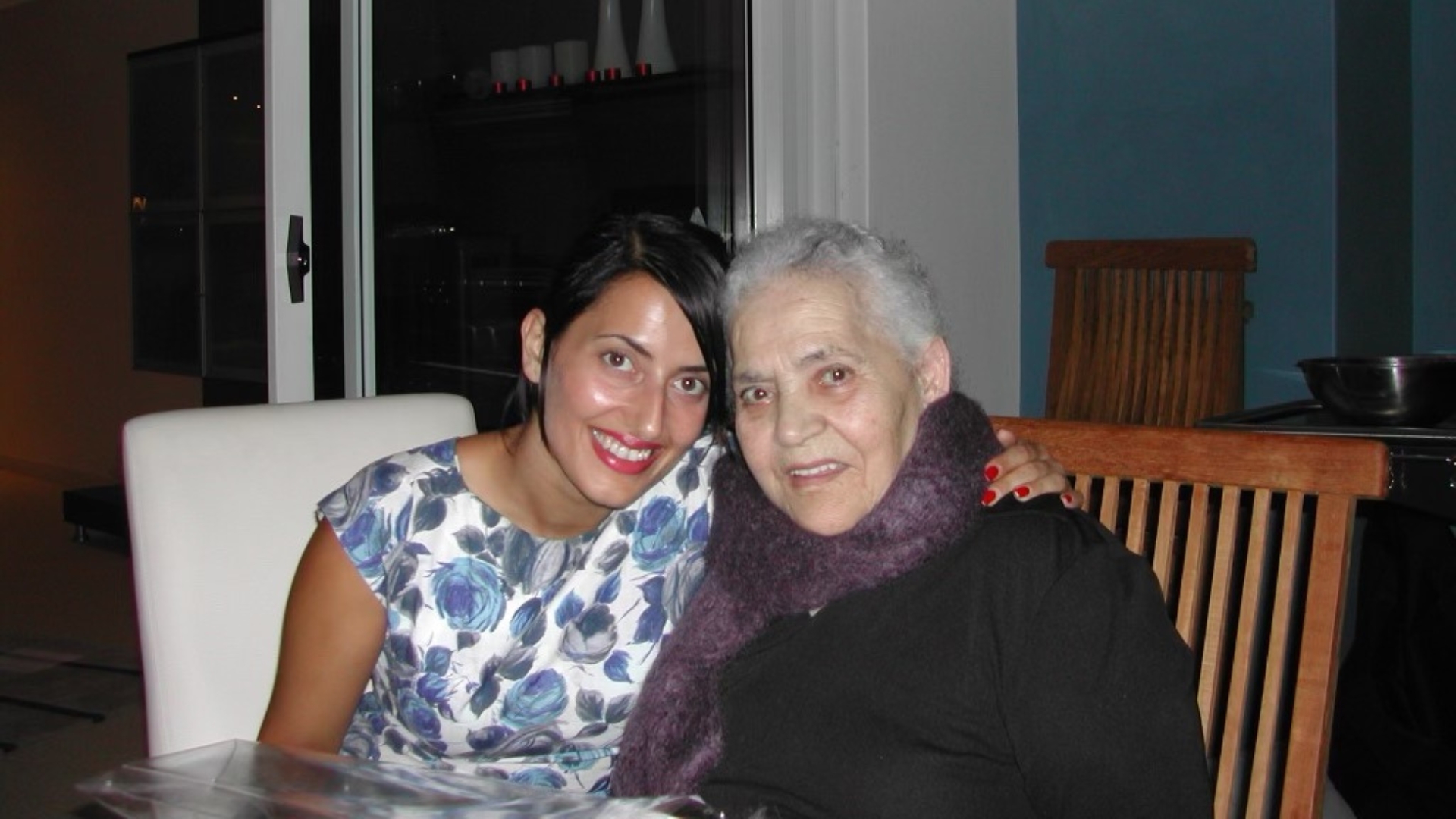Travelling overseas, crafting a career path and even study are just some of the plans young people make in their 20s. But not Greek Cypriot Olivia Nassaris.
During her 20s, Olivia became a carer for her yiayia Despina who had been diagnosed with advanced stages of Parkinson’s, and eventually became her end-of-life carer.
Now, as the recently appointed Chief Executive Officer of Parkinson’s Australia, Olivia revealed to The Greek Herald the launch of a new campaign that will advocate for people living with Parkinson’s.
By Martina Simos
The Adelaide-based CEO, National Advocate and Changemaker has a ‘wealth of experience’ that involves engagement with people affected by Parkinson’s, government relations and advocacy skills.
To this day, Olivia’s past experience in looking after her yiayia has been a driving force in forging a career in the not-for-profit sector.
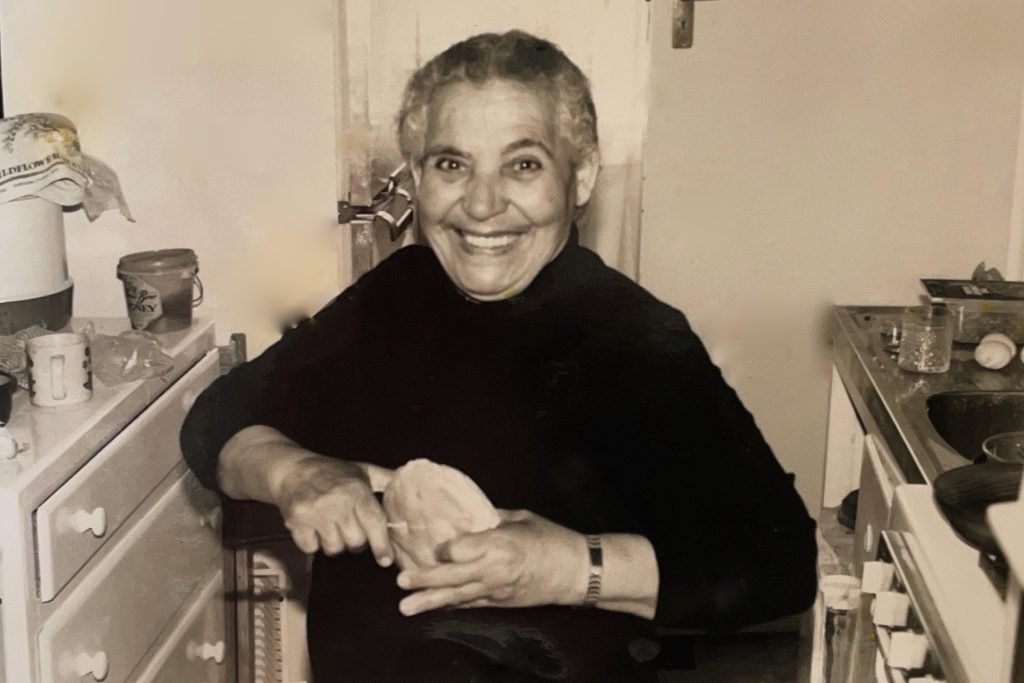
“She’s the reason that I’m so inspired and proud to work for the Parkinson’s Community,” Olivia told The Greek Herald.
“It’s an honour to be appointed in the role. I feel that my yiayia would have been very proud and that her good nature and values guide me in my work daily.”
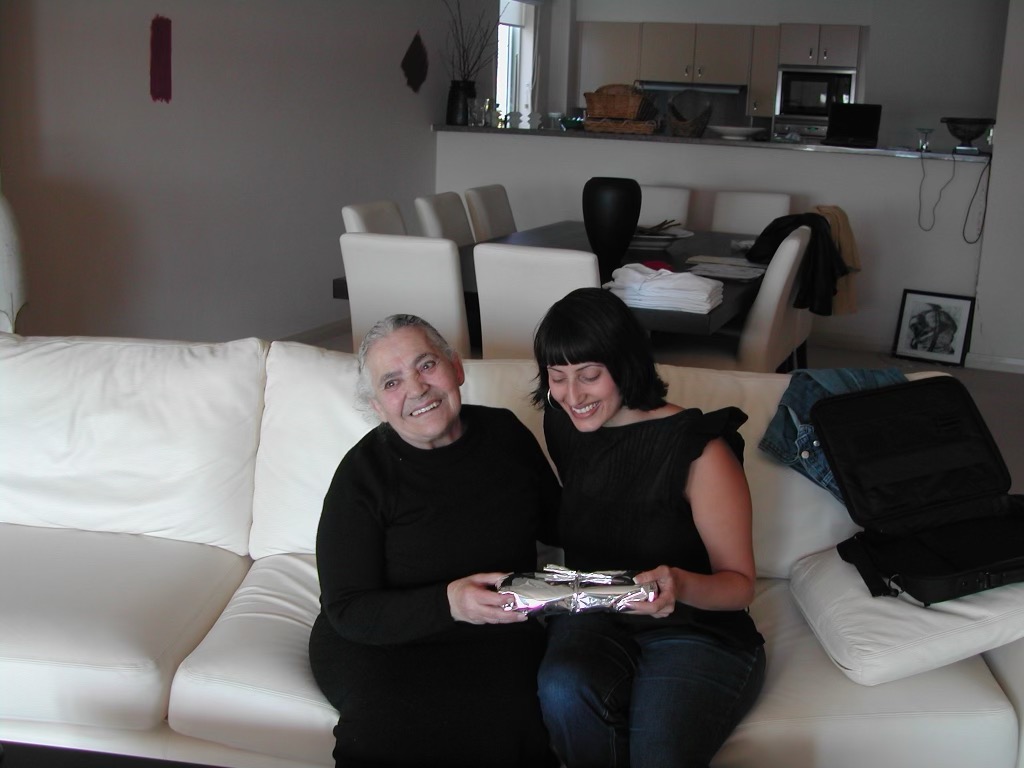
Olivia has also spent 10 years as Executive Director of The Hospital Research Foundation Group (THRFG) – Parkinson’s & Stroke prior to this appointment.
While at THRFG, Olivia successfully lobbied the state government in July 2022 for a $2.25 million grant. This enabled four community-based Parkinson’s nurse specialists to be appointed in South Australia, to travel to regional, rural and remote areas, assisting people living with Parkinson’s.
More than 8,000 people in SA live with Parkinson’s and other neurological diseases.
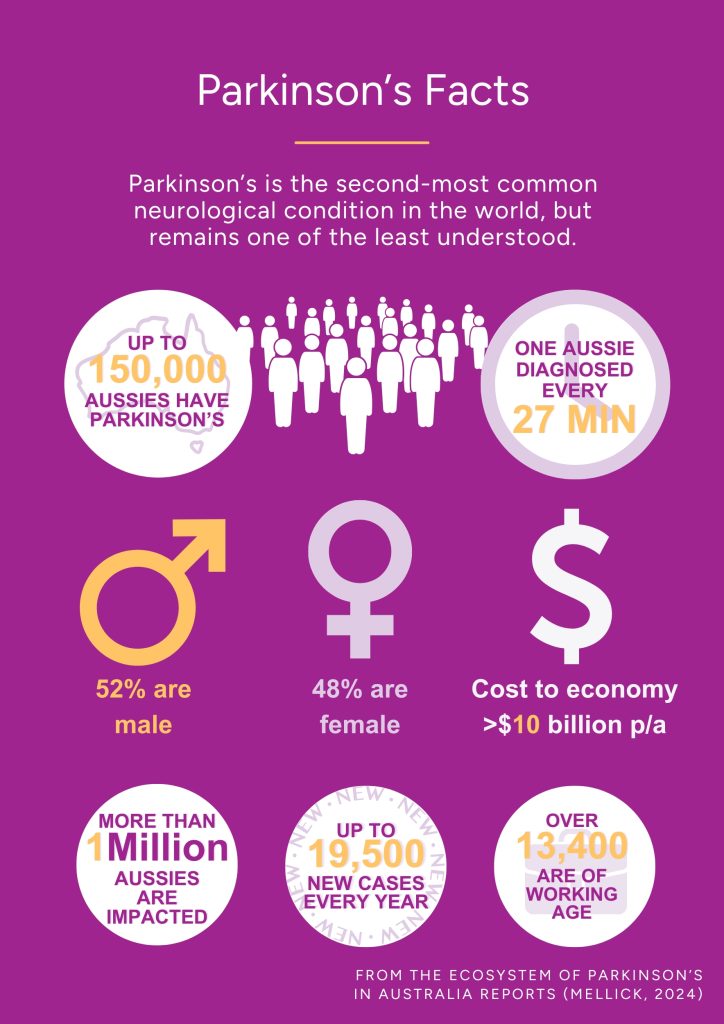
Advocacy body
Parkinson’s Australia is the national advocacy body representing people living with Parkinson’s, their families and carers, as well as researchers and health professionals in the Parkinson’s community.
Parkinson’s Disease is a neurodegenerative condition that currently has no known cure. It is one of the most challenging diseases to care for because of its chronic progressive nature, insidious onset, complicated and diverse motor and non-motor symptoms.
People diagnosed with Parkinson’s generally have four key clinical features: tremor, muscle rigidity, poverty of movement and loss of normal posture with a tendency for falls.
Lesser known is the major impact on non-motor functions such as depression, anxiety, behavioural disturbances and cognitive impairment, sleep disorders, hallucinations, sensory deficits such as loss of smell and visual problems, and impaired speech.
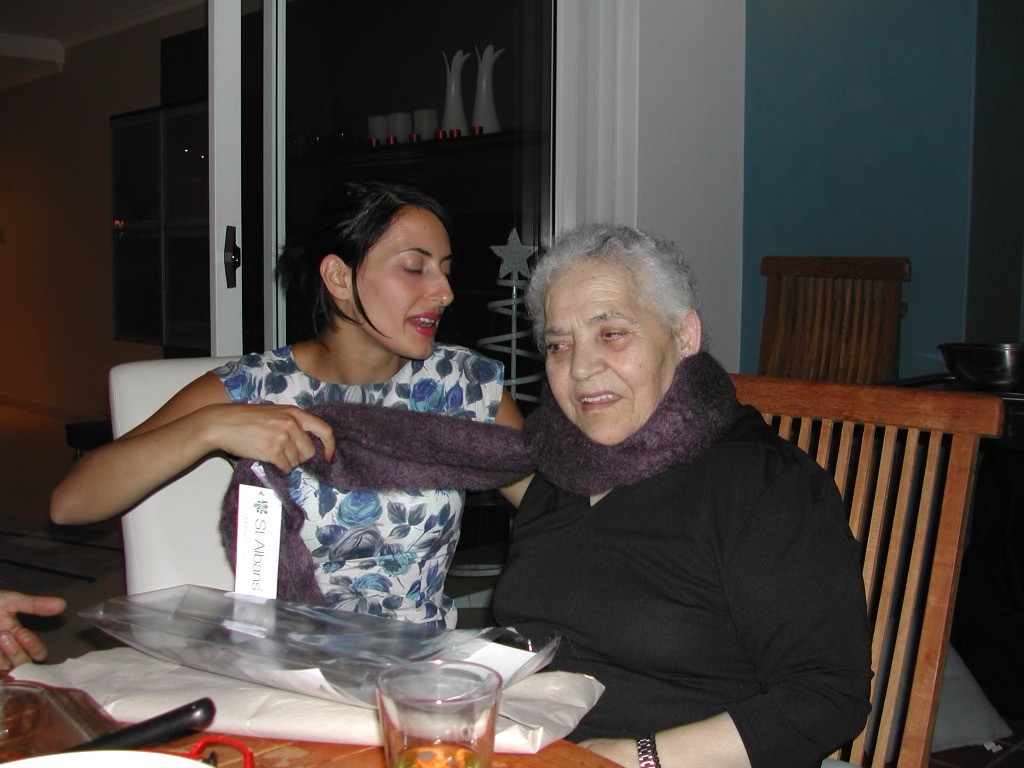
National Advocacy, Connection, Awareness:
Parkinson’s Australia recently revealed their long-term plans to raise awareness of Parkinson’s. One in 308 people in Australia have Parkinson’s. It is more common than prostate, bowel and many other cancers that are considered National Health Priority Areas.
Olivia was in Canberra recently to present a 100-page report, Pre-Budget Submission 2024-25– Proposal for a Lived Experience Project, a National Awareness Campaign & GP Education Program, to several key politicians including the Federal Minister of Health and Aged Care, the Hon Mark Butler and Federal Member for Adelaide, Steve Georganas.
The submission report outlines that a $2 million investment by the Federal Government will assist to fund:
- a lived experience project, $250,000 – allowing people living with Parkinson’s and their families to tell their stories, this includes culturally and linguistically diverse (CALD) communities;
- a public awareness campaign, $950,000 – for target audience to recognise and understand the signs of common symptoms of Parkinson’s;
- and a GP education program, $850,000 – to lead the way in recognition of the early signs of Parkinson’s and the benefits of early intervention, ensure health professionals are up-to-date with the latest evidence-based management of Parkinson’s, enhance the understanding and treatment of both motor and non-motor symptoms.
According to Olivia, future plans also include raising awareness about Parkinson’s Disease with Australia’s CALD communities.
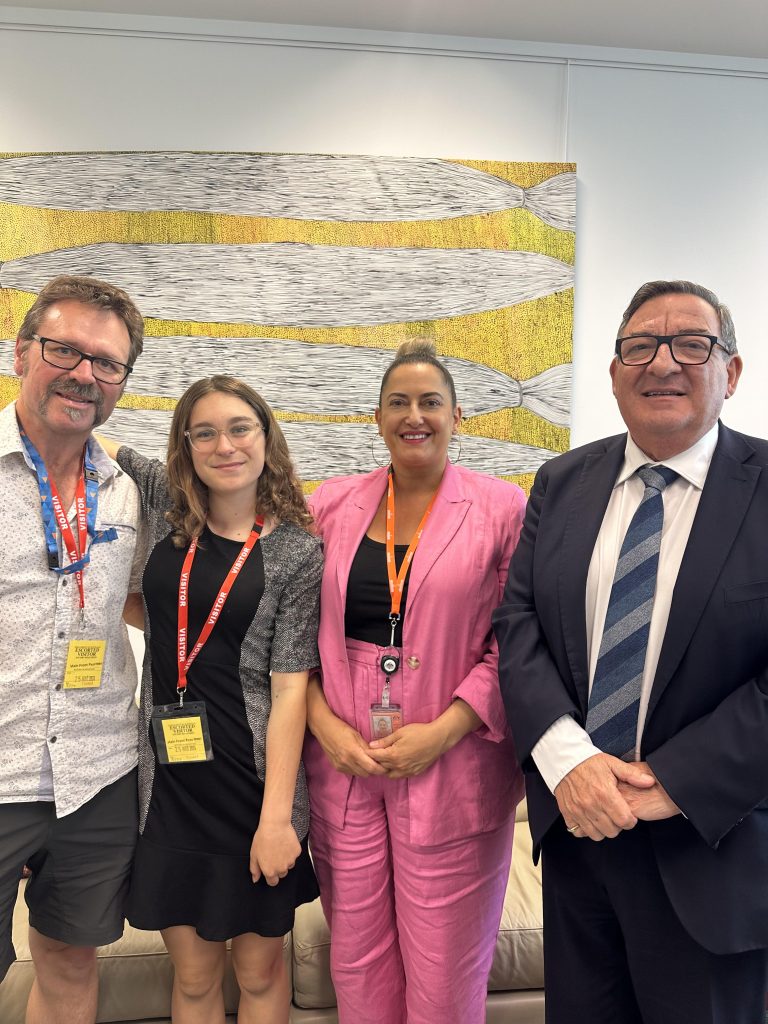
“Part of our pre-budget submission is a scoping study – and that includes looking at CALD communities like the Hellenic community to see if and how they are accessing the supports that are available and what barriers exist,” Olivia said.
“Australians living with Parkinson’s deserve advocacy at a national level that can respond to this changing environment, understand the differences in jurisdictional health systems and the diversity of needs across the country and deliver to produce positive impacts for the entire Parkinson’s community.”
This World Parkinson’s Month other activities for Parkinson’s Australia include a launching of the newly branded and updated website, and the appointment of new board directors.
For the first time in ten years, the 2025 National Conference will also be held next April for people living with Parkinson’s and carers, support people, and allied health professionals.

